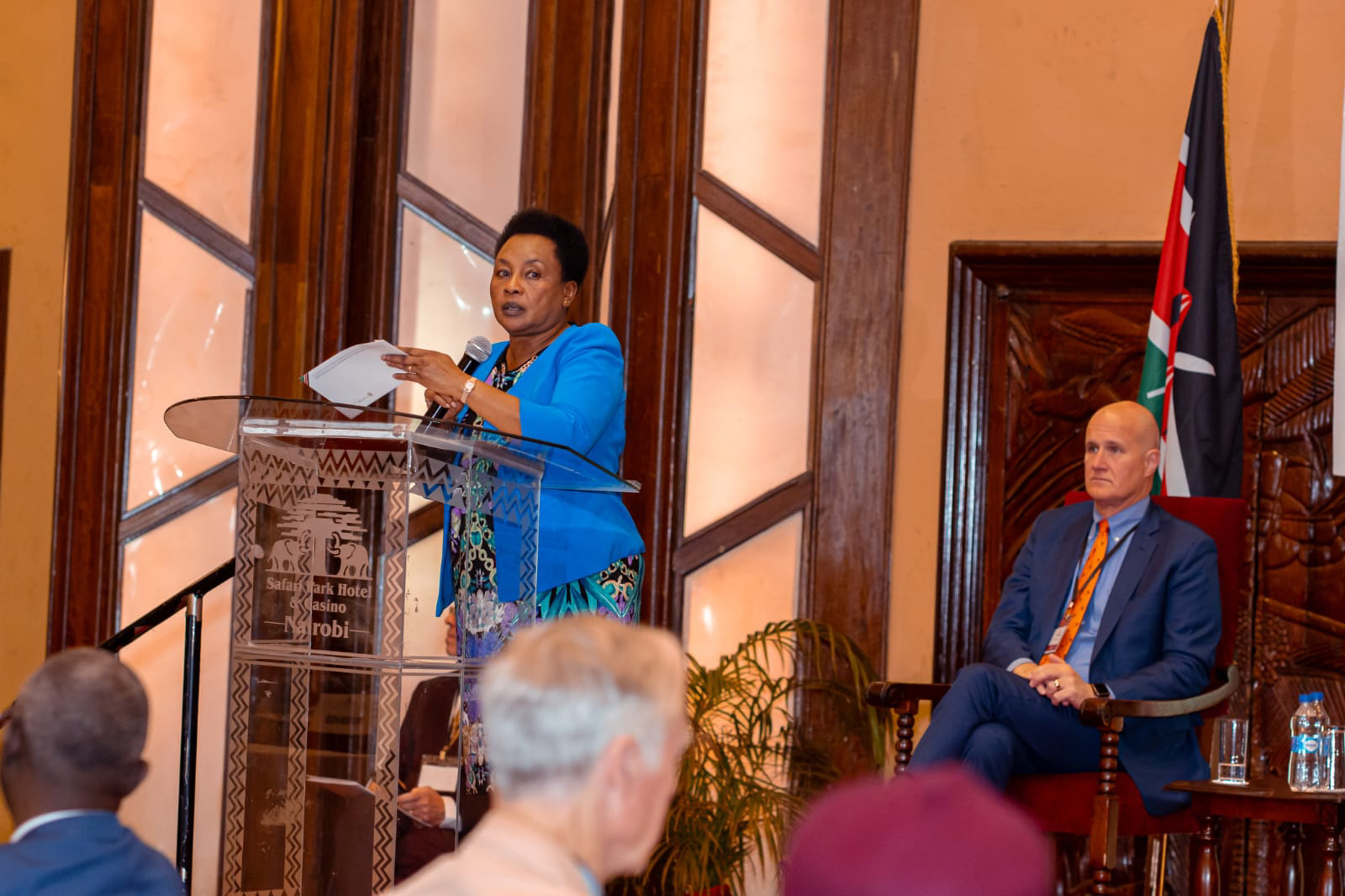Dr. Augustus Kyalo Muli Launches Manifesto for Political Parties Liaison Committee Chairmanship
By James Nyaigoti,
The race for the chairperson of the Political Parties Liaison Committee (PPLC) has officially gained momentum, following the manifesto launch of Dr. Augustus Kyalo Muli, the National Liberal Party (NLP) nominee for the position.
The event, held in Nairobi, brought together representatives from more than 80 political parties, a strong showing that underscores the growing significance of the PPLC in Kenya’s political landscape.
Established under Section 38 of the Political Parties Act, 2011, the Political Parties Liaison Committee was created to foster structured dialogue between political parties, the Office of the Registrar of Political Parties (ORPP), and the Independent Electoral and Boundaries Commission (IEBC).
The PPLC was one of the key recommendations of the Kriegler Commission Report following the disputed 2007–2008 general elections. Its primary objectives include promoting free, fair, peaceful, and transparent elections, strengthening multi-party dialogue, and building trust in Kenya’s electoral processes through consultation and collaboration.
Since its inception, PPLC structures have been launched at both national and county levels, forming an essential bridge between political parties and electoral management bodies.
Speaking during the event, NLP Secretary-General Omondi Koyo said the manifesto launch represents a new chapter for the committee.
“We have gathered here today—over 80 political parties out of the 91 registered—to officially endorse Dr. Augustus Muli as our nominee for the chairmanship of the Political Parties Liaison Committee,” said Koyo.
“This is part of the democratic process as we head towards the PPLC elections scheduled for November 6, 2025, under the supervision of the IEBC and ORPP.”
He added that the elections will fill several key positions within the committee, including Chairperson, Vice Chairperson, Secretary, Deputy Secretary, Organizing Secretary, and other members forming the 16-seat structure of the national PPLC.
Dr. Muli’s Vision: Empowering Political Parties
In his address, Dr. Augustus Kyalo Muli, who also serves as the party leader of the National Liberal Party, outlined his vision for a more independent and empowered PPLC.
“The Political Parties Liaison Committee was created as a tripartite body bringing together political parties, the IEBC, and the Registrar of Political Parties,” Dr. Muli said.
“Unfortunately, over the years, the PPLC has been underfunded and sidelined in key national discussions. The IEBC and ORPP have continued to make decisions affecting political parties without proper consultation. This must change.”
He emphasized that his leadership would push for the independence of political parties, control over their own funding, and a stronger voice in electoral policy formulation.
“Political parties are the foundation of democracy,” he added. “They should not operate as subordinates of the registrar or the electoral commission. My chairmanship will ensure PPLC becomes an institution that truly represents and safeguards the interests of all political parties in Kenya.”
Dr. Muli also noted that Kenya stands at a defining moment, shaped by the recent Gen Z movement that demanded greater accountability and inclusion in national governance.
“The PPLC must evolve with the times. The youth have spoken; they demand transparency, fairness, and a voice in shaping the political future of this country. The PPLC should be at the forefront of that change,” he said.
As Kenya prepares for the upcoming PPLC elections, Dr. Muli’s manifesto signals a push to reinvigorate the committee’s role in promoting credible, inclusive, and participatory democratic processes.
If elected, his first 100 days will focus on institutional reforms, securing sustainable funding for the PPLC, and establishing mechanisms for consistent engagement between political parties and electoral bodies.
With widespread backing across the political spectrum, Dr. Muli’s campaign could mark a turning point for the PPLC transforming it from a consultative forum into a truly empowered engine of political reform in Kenya.
The Political Parties Liaison Committee (PPLC) was formed following the Nakuru Resolutions of March 2010, jointly adopted by the Interim Independent Electoral Commission (IIEC), the Office of the Registrar of Political Parties, and all 47 registered political parties at the time.
Its primary mission is to build trust, strengthen multi-party cooperation, and ensure transparent, peaceful elections through structured engagement between political players and regulatory institutions.




Comments
Post a Comment